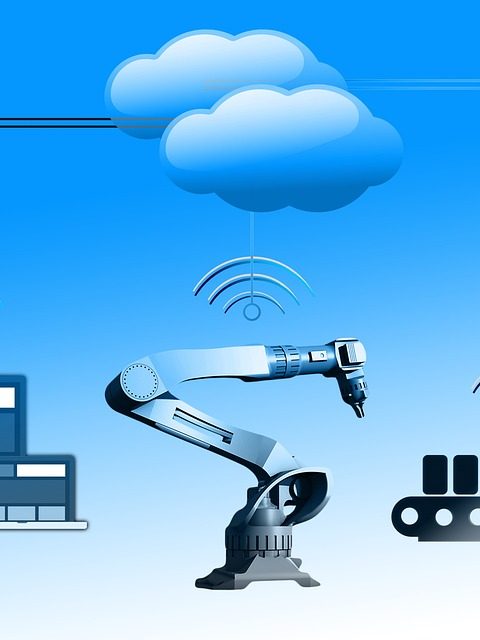In an era where environmental concerns and sustainability have become increasingly critical, technology is stepping up to play a pivotal role in addressing these issues. Eco-friendly technology, often referred to as “green tech,” encompasses a wide range of innovations designed to reduce our impact on the planet and promote a sustainable lifestyle. In this blog, we’ll explore the many ways in which eco-friendly tech is shaping a greener, more sustainable world.
The Importance of Sustainable Living
Before delving into the realm of eco-friendly technology, it’s essential to understand why sustainable living is crucial. As the global population grows and natural resources become scarcer, adopting sustainable practices is necessary to mitigate the impact of human activities on the environment. From reducing greenhouse gas emissions to conserving energy and minimizing waste, sustainability is a pressing global concern.
The Role of Eco-Friendly Technology
Eco-friendly technology is all about harnessing the power of innovation to address environmental challenges. It seeks to minimize negative impacts on the planet, encourage responsible resource use, and promote a sustainable lifestyle. Here are some key areas where eco-friendly tech is making a significant difference:
1. Renewable Energy Sources
One of the most prominent aspects of eco-friendly technology is the transition to renewable energy sources. Solar panels, wind turbines, and hydroelectric power are just a few examples of green tech that generate electricity with minimal environmental impact. These technologies not only reduce greenhouse gas emissions but also promote energy independence.
2. Energy-Efficient Appliances
Modern eco-friendly appliances are designed to be energy-efficient. Energy Star-rated products, for instance, consume less electricity and water while performing their functions. From refrigerators and washing machines to light bulbs, these appliances help reduce energy bills and decrease the carbon footprint.
3. Electric Vehicles
Electric vehicles (EVs) are revolutionizing the automotive industry. They produce zero tailpipe emissions and are much more energy-efficient than traditional gasoline-powered vehicles. As the charging infrastructure expands and battery technology improves, EVs are becoming a more practical and eco-friendly transportation option.
4. Smart Home Systems
Smart home technology enhances energy efficiency by automating various functions. Smart thermostats, for example, can optimize heating and cooling based on your schedule and preferences, reducing energy waste. Lighting and appliance control systems also contribute to energy conservation.
5. Sustainable Building Materials
Eco-friendly technology extends to construction and architecture, where sustainable building materials are gaining popularity. These materials are durable, energy-efficient, and often made from recycled or renewable resources. Building designs also incorporate green elements, such as passive solar heating and natural ventilation.
:max_bytes(150000):strip_icc()/ecotech_robothands_gettyimages-1179633351_koya79_cropped_1745_v3-c9e218ef95494c239b2edfb8294fe2a1.jpg)
6. Waste Reduction
Eco-friendly technology is being used to reduce waste. Innovations like composting machines and food recycling systems can turn organic waste into valuable resources, while 3D printing and digital manufacturing are minimizing material waste in various industries.
7. Water Conservation
Water is a precious resource, and eco-friendly technology is helping reduce water waste. Low-flow toilets and water-saving fixtures are standard in green building designs. Additionally, sensor-based irrigation systems help optimize water use in agriculture.
8. Green Data Centers
The tech industry itself is embracing sustainability. Many data centers now use eco-friendly technology to minimize energy consumption and reduce the environmental impact of server farms. Techniques like server virtualization and advanced cooling systems have been adopted to lower energy usage.
9. Recycling and Circular Economy
Eco-friendly tech also supports the recycling and circular economy by developing advanced sorting and recycling equipment. These innovations help divert more materials from landfills, reduce the need for raw materials, and promote resource conservation.
Challenges and Future Trends
While eco-friendly technology has made significant strides, there are challenges to overcome. Cost can be a barrier to widespread adoption, as many green technologies are initially more expensive than their conventional counterparts. However, the long-term savings and environmental benefits often justify the investment.
The future of eco-friendly tech holds exciting possibilities. Advancements in battery technology will make renewable energy storage more efficient, while innovations in artificial intelligence and the Internet of Things (IoT) will further enhance energy management and conservation in smart cities and homes. Sustainable transportation options will continue to evolve, and the development of green materials and construction methods will shape a more sustainable urban landscape.
Eco-friendly technology is driving the transformation toward a more sustainable lifestyle. By harnessing innovation and embracing green solutions, we can reduce our ecological footprint, conserve natural resources, and combat climate change. Whether through renewable energy, energy-efficient appliances, sustainable building materials, or waste reduction, eco-friendly tech offers a path toward a more environmentally responsible and sustainable future. Embracing these technologies and adopting a green lifestyle is not only a responsible choice but also a critical step toward a healthier planet for future generations.




